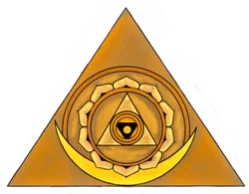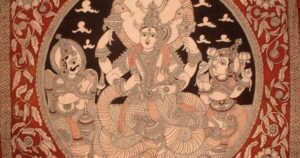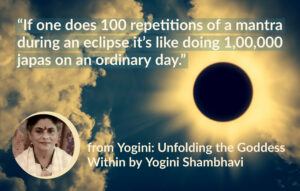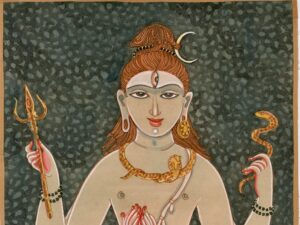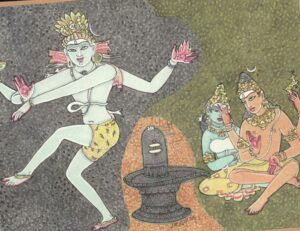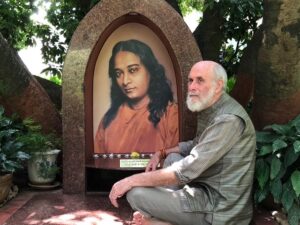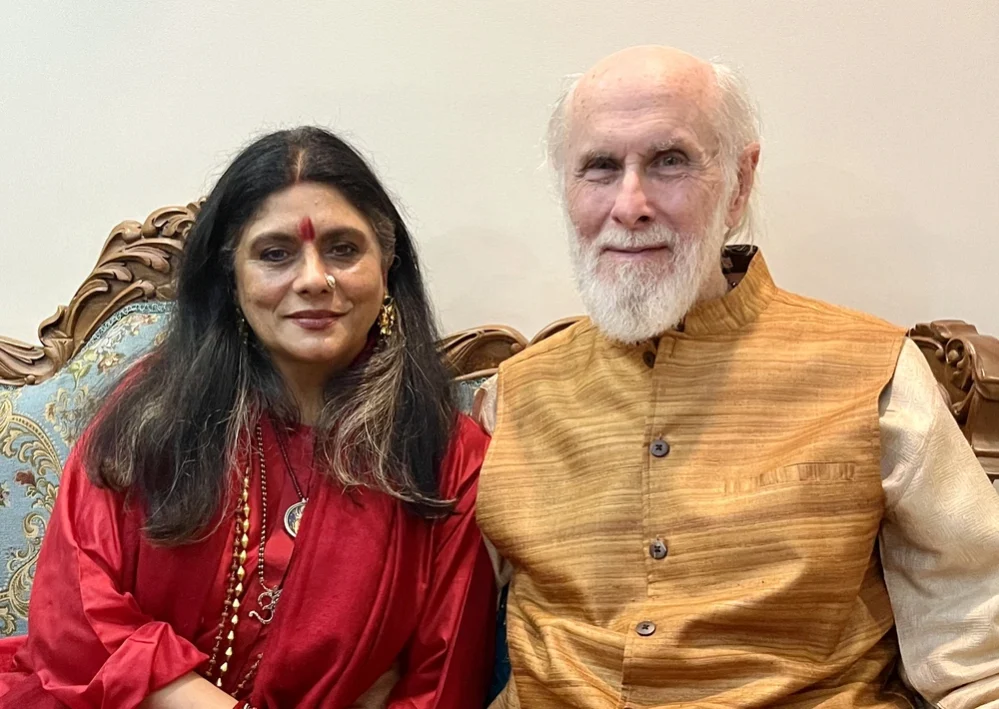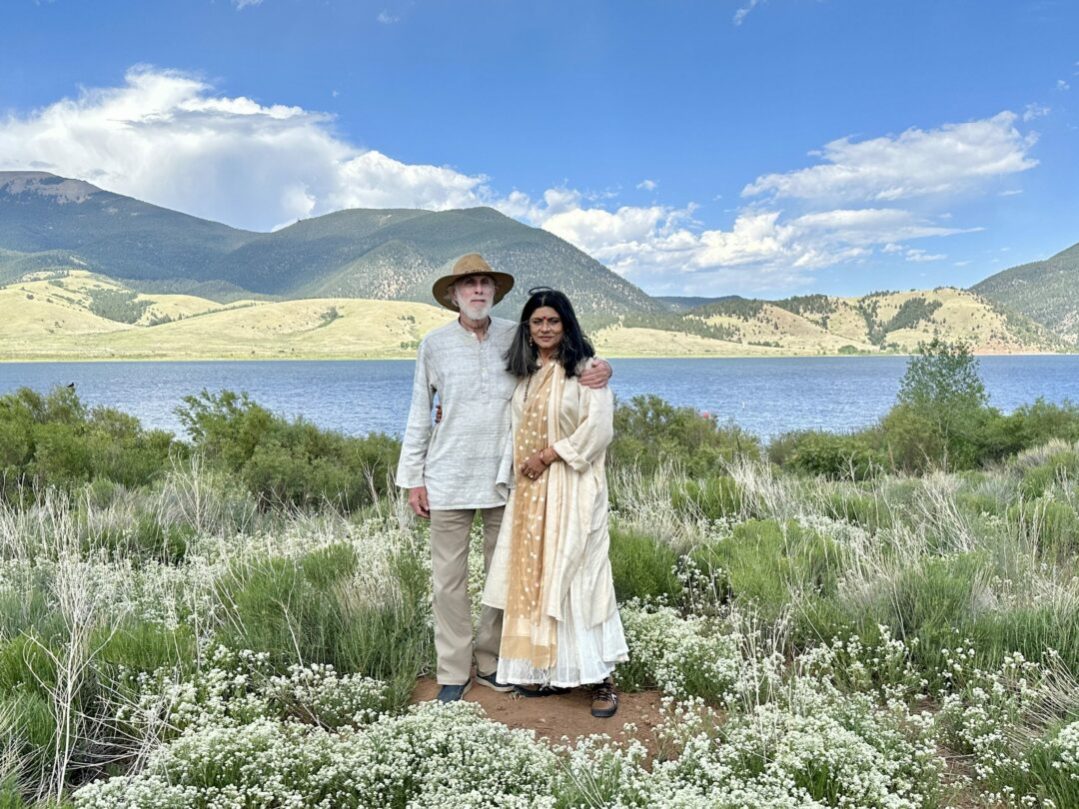By David Frawley (Vamadeva Shastri)
Read the full article in the New Global Indian (page 50)
We live in an era of information based technology and the resultant global economy. We have witnessed the many wonders of high tech with its powerful computers, great mass media displays, global communication and global travel. We have seen spectacular advances in medicine and science as well. Indeed we seem to be living in another planetary age than even a century ago.
Yet we are now also witnessing the limitations, if not calamities brought about by the same high tech approach. In spite of all our knowledge about global markets and how to manipulate them, our economies have fallen into a market crash that our information technology failed to predict and is having a hard time adequately managing.
Similarly, in spite of all our skill in surgery and new medical drugs, our culture as a whole is becoming progressively unhealthy and longevity in the United States is beginning to decline. It is not some new and difficult to diagnose diseases that are behind this problem that require a highly sophisticated technology to treat. It is a result of a widespread problem of simple obesity, born of our unhealthy modern diets and life-style, which is easy to diagnose but very difficult to treat even with all our medical advances.
The growing ecological crisis in the world is another sign that technology may not give us a better quality of life, if we measure that quality by the condition of our natural environment and its air, water and soil which are getting progressively polluted. Nor do mere information and extensive data bases allow us to more harmoniously interact with the non-human world around us.
Are these difficulties warning signs that our high tech civilization may decline or collapse in the next few decades? Are the signs we are seeing today, the harbingers of yet greater problems? This possibility leads to us to seek for a way out of or beyond this problem. Is there a higher knowledge approach that we can bring into the world today that will allow us to use our information technology in a better and more sustainable manner?
The Limitations of Information: Information is Not Intelligence
What after all, is information? Information is not true knowledge, much less wisdom. By itself information does not provide certainty. It is raw data and statistics that need to be interpreted in order to make sense of them. Information is not objective but has an inherent subjective orientation. The body of information we have will reflect the concerns or the biases of those who gathered it for us.
Sometimes too much information can cripple action or inhibit real perception. Sometimes we have a lot of information that may not be relevant to our problem, or may only reflect one side of it. Often the information, rather than being a tool, becomes an end itself and we gather information, rather than developing new insights, until the weight of information stifles the mind.
Information can easily remain just superficial knowledge that reflects a particular perspective that may not at all be complete or definitive. Information on a topic can be a lot like the views of a flashlight put together that may be focusing on different points, different directions and different distances, leaving one with confusing fragments rather than any real vision of the whole. Information is often curious and easily descends into trivia. It may conceal more than it reveals.
If a cook finds that one grain of rice in a pot is done, he does not have to examine every single grain of rice before serving the food. But he knows how the individual factor reflects the whole and so does not need to tear everything apart. Information does not seem to know what its limits are. It is not so much better information gathering that we need but better direct perception.
And what is technology? It largely consists of more sophisticated outer equipment, which may be helpful and necessary in our practical functioning, but may just be a distraction. Technology does not necessarily make a better person or improve the mind, contentment, or judgment that we already have. Technology can free us from certain outer necessities and expand our material capacities. Yet technology can also make us so dependent upon outer equipment that we forget to develop ourselves and our non-material, mental and spiritual potentials.
For example, if we focus on a media screen too much, which remains two dimensional, we can lose the ability to appreciate the sights and sounds of nature, which have much greater depth and variations and provide a richer nourishment for the senses and emotions. We may even lose our capacity to communicate with other individuals on a one-to-one basis, as we have been conditioned to look at screens, not talk to people at a heart-to-heart level. If we focus on our vehicles to much, for example, we may lose our ability to walk, run or exercise properly. While some technology is extremely helpful – and I would not suggest going back to a pre-technological way of life – a life based upon technology apart from or against the world of nature, easily becomes a life out of balance.
Dangers of Consumerism
Perhaps the more fundamental problem is that information technology has been cast in the context of a consumerist culture and its values, which determines how it is used. Consumerism itself poses many dilemmas, as its goal is essentially to use things up and throw them away, not to create something enduring. Our consumerist economy is set up only to expand and progress in the material sense of more and more material items, sales and development. Should this consumerist economy cease to expand, it may be in danger of collapsing altogether, which is what we are starting to see today.
Our sophisticated information technology is applied in the context of consumerism, which often seems little more than a glorified animal urge to eat everything, until nothing left remains. Rather than sublimating our unrefined impulses, it seems to glorify and expand them.
Expansion means more people, more vehicles, more houses, bigger cities and so on. But obviously expansion has its limits. The population in many European countries, having reached the size the country can handle, is aging. In some it is declining. Can we have an economic model for contraction and conservation? Will it be consumeristic or do we need a new set of values based upon appreciating what we have and honoring what exists, particularly at a non-material and spiritual level?
The consumer often becomes the consumed. We ourselves become commodities in the market place that are eventually discarded, like old workers from a factory. We may even be well paid media personalities, but we have a name, number, rank and recognition that must eventually go down in the great movement of time.
Information technology provides a quantitative growth, but what quality does it bring into our lives? Where is the quality of knowledge in information technology? Qualitative knowledge arises from direct perception when the mind is silent and free of preconceptions, opinions, likes and dislike, able to rest in its own nature without change or agitation.
True knowledge is a state very different from the mind pursuing more and more information that is ever changing, stimulating the senses with new news and new noise and making us more politically and economically sensitive, vulnerable, and disturbed. The information technology mind appears like reactive mechanism, a gun that is on a hair pin trigger.
Need for an Inner Knowledge Revolution
We need a new “inner knowledge revolution” to take us beyond the limitations of information based technology and consumerism. We need to discover a higher dimension of knowing in which information, like a building block, can be put in its proper place. This is where the culture of India can help the current humanity. India has maintained a tradition of inner knowledge, a seeking to know our inner being or true Self called the Atman or Purusha. This inner knowledge orientation is the basis of India’s great traditions of Yoga, Vedanta and Buddhism.
After all, if we don’t know ourselves, how can we gain peace, happiness or anything else really meaningful in our lives? Such inner wisdom can take control of information technology, understanding both its benefits and its limitations.
It is important that we question the driving forces behind our society, which may not at all be enlightened. No doubt, information technology based civilization is a great advance on previous cultural models based upon labor, a kind work for the sake of the master or the boss that tends to create a slave mentality. But information technology has not and probably cannot serve to free our deeper soul, self and being, nor can it address our innate spiritual need for the infinite and eternal or any other form of lasting content and harmony with the greater universe.
Technology is no substitute for our own ability to know when to act and when to not act. Often inaction or patient observation is preferable to hasty or unprepared action. Individual action, moreover, may be more transformative than any en masse movement. There is a ‘technology of inaction’, but it is an inner technology of learning how to harness the forces of our own psyche through Yoga and meditation. There is also a technology of higher action or Karma Yoga, a Yoga of service in which we seek to bring a higher awareness and grace into the world, not just simply to sell our products quicker.
Information technology easily breeds a mechanical approach that moves in a linear way. True intelligence can grasp the whole without having to count the parts. This is what Vedic systems of knowledge teach us whether it is the Vedantic view of awareness, the Yogic view of Prana, or the Ayurvedic view of the doshas or biological humors.
If we want to take information technology to the next level we need an applied creative intelligence born of Yoga and meditation. This inner intelligence of the whole reveals the nature of the universe that is reflected in our own inner being. This inner intelligence brings us Veda, which is the ancient Indian term for deep wisdom and cognitive knowledge of the highest reality. The application of this inner intelligence is Yoga in the deeper sense of the term, which means ‘union, integration and coordination of all the parts into a single organic flow’.
The harmony of the universe so revealed is Dharma or the eternal natural law of unity, interdependence and complementarity. We need a new dharmic based technology to bring our society into harmony with the laws of life and cosmic intelligence.
What Vedic thought can bring to information based technology is this deeper view of Self-knowledge, integrative action and a recognition of the sacred nature of all life, so that we are once more looking at the whole, ourselves whole, humanity and nature whole, able to perceive directly, comfortable in our own being, masters of our own minds, not blindly reactive to outer political, economic or religious stimuli.
If we don’t bring such a broader view into business and politics today, our current consumerist expansion will lead to a great collapse. Nature already is shuddering under the load that we have put upon her with too many people, too many pollutants and too much disruption of our natural energy fields, whether in the atmosphere, the water or the soils.
India’s new set of young entrepreneurs – who still have the cultural and family heritage of Yoga and Vedanta – can help in such a dharmic reorientation of our present civilization. Let us hope that they awaken to this task because if they do not, it is difficult to see where the alternative may come from.
As India develops economically, it should not forget its higher role in sharing that vision of wholeness at a global level. India’s younger generation of entrepreneurs should realize that the future belongs to such inner knowledge systems and that the age of information technology is already reaching its limits.
There are many signs of such an awakening. Whether it is business management based upon the Bhagavad Gita, Yoga and meditation classes in the work place, Ayurvedic life-style recommendations along with medical treatment, using Vedic astrology to plan the future, or using mantras to improve our perceptual skills – the scope for action and transformation through Vedic systems of knowledge is unlimited.
